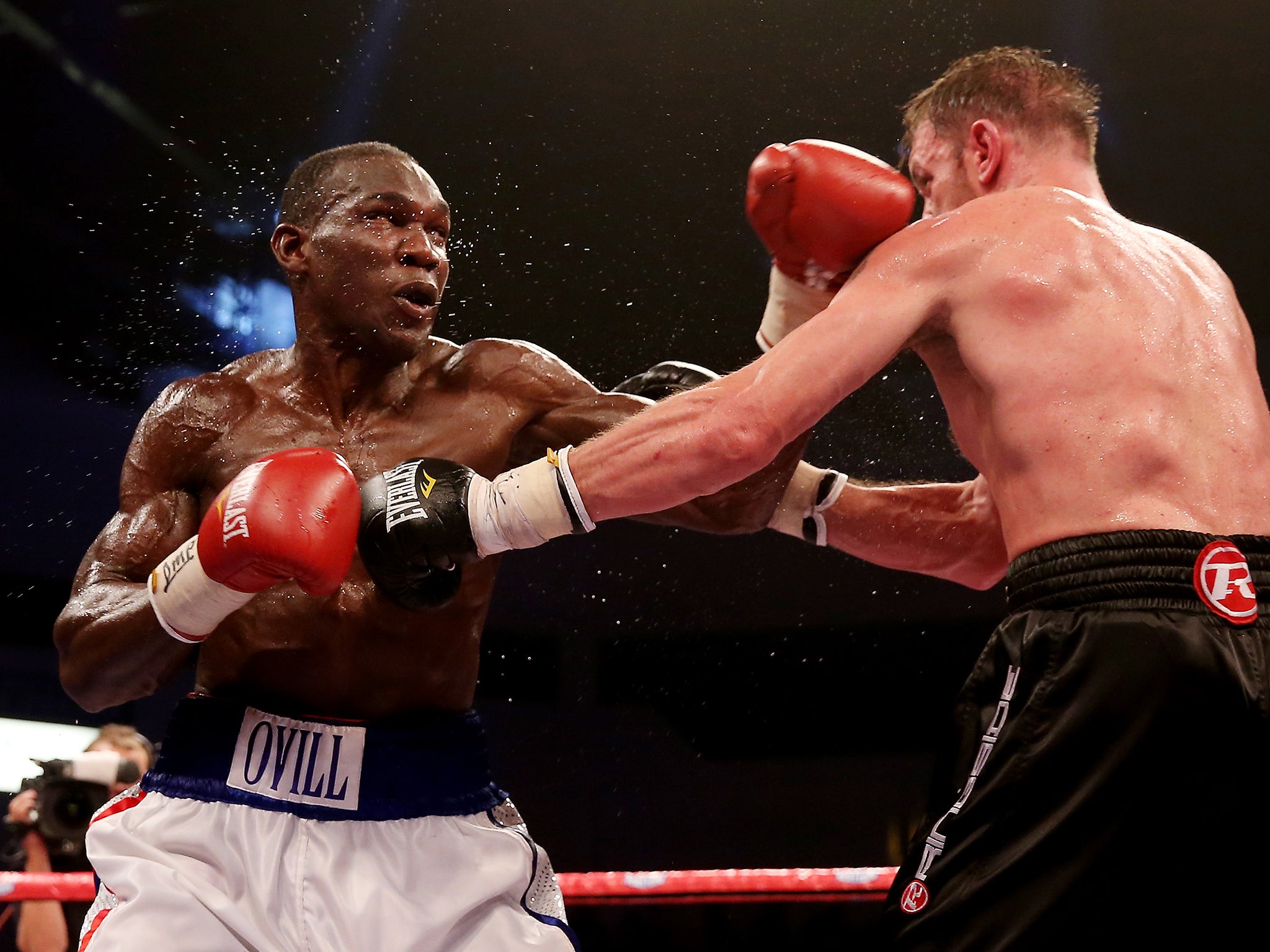Steve Bunce column: From a shed to a world title shot - Ovill McKenzie's tale can have happy end
INSIDE BOXING: This Saturday in Widnes, McKenzie defends his British and Commonwealth cruiserweight titles

Your support helps us to tell the story
From reproductive rights to climate change to Big Tech, The Independent is on the ground when the story is developing. Whether it's investigating the financials of Elon Musk's pro-Trump PAC or producing our latest documentary, 'The A Word', which shines a light on the American women fighting for reproductive rights, we know how important it is to parse out the facts from the messaging.
At such a critical moment in US history, we need reporters on the ground. Your donation allows us to keep sending journalists to speak to both sides of the story.
The Independent is trusted by Americans across the entire political spectrum. And unlike many other quality news outlets, we choose not to lock Americans out of our reporting and analysis with paywalls. We believe quality journalism should be available to everyone, paid for by those who can afford it.
Your support makes all the difference.There was once a wooden shack built on the roof of the Peacock gym in Canning Town in London’s old East End where the bunk beds were three high and packed each night with exhausted men having the ancient dream of all boxers.
In 2001 Ovill McKenzie had a berth in the makeshift home where the boxers had their sugary treats hanging from their beds in plastic bags and the entire building was draped in sweaty clothing. The narrow galley between the high-rise bunks was decorated with six metre-long pieces of bandage, which the fighters had to clean and dry each night to protect their fists, and then hang as a flimsy curtain of privacy.
The men with a ticket to sleep in the slender bunks were from all corners of the boxing globe and it was a backwater retreat where no questions were asked. It was a place where a former Soviet light-heavyweight from Latvia and a tiny flyweight from the Congo, who would never share one of the Peacock’s rings, could be united in the tiny kitchen over boiling pots like a couple of modern urchins.
McKenzie was given his own bunk in late 2001 and started his professional career, far from the streets in Kingston, Jamaica, where just two years earlier he had sold fast food from the kerbside and known nothing of the boxing business.
“I wanted to turn professional in America but it was a bad time,” remembered McKenzie. “I should have been at the [Sydney] Olympics but there was no money to send me in Jamaica and I was told I was too old – it was bad and crazy; I ended up at the Peacock and in many ways I have been here ever since.” McKenzie, by the way, starts and ends and punctuates all conversations with “brudda”.
Life as a roof warrior, as the Peacock’s Martin Bowers calls the men who lived in the hut, was never easy and for McKenzie the start of his professional career followed a difficult path during what was surely a desperate time: in his first 11 fights he lost six times. It was a similar record to most of the men fighting desperately for something better in a neglected part of London that is only now changing.
“I took some bad advice and I took some tough fights,” admitted McKenzie, who met a succession of unbeaten men and prospects. “The boxing business was hard then, still is, but I kept on going. All of us in that place kept on going. We had to keep fighting, that was all that we knew.” McKenzie lived in the attic, as he calls the old shed, for nearly four years before a move to Derby, where he supplemented his boxing earnings with volatile nights on the doors. The shed was taken down in about 2005, but remains a colourful part of the Peacock’s history.
When McKenzie won the British cruiserweight title last summer, as the away boxer in a local fighter’s hometown, he had lost 12 times in 34 fights, which is the type of raw statistic that belongs in the Fifties and Sixties and not in modern boxing, where so few of our top fighters end their careers with more than three or four defeats.
This Saturday in Widnes, McKenzie defends his British and Commonwealth cruiserweight titles against Matty Askin in what will be a rare appearance where he is considered the “house” fighter and part of the promotion.
“It has taken a long, long time to get here,” said McKenzie. “I have had so many rejections on the way, so many setbacks and, it’s funny… I kinda like the rejections. It gives me something to fight for. Now, it’s different because I’m fighting for a world title chance.” McKenzie is 35, the best cruiserweight in Britain and there is every chance of securing a world title fight, even in a skewed business where being the best in your weight is an irrelevancy when it comes to negotiating world title fights.
In a week when more of British boxing’s often delusional protected fighters, veterans of too many lopsided victories, are expected to announce important fights, it is reassuring to know that men like McKenzie can still emerge from behind all of the polished products, a raw reminder of boxing’s forgotten days and a good man on both sides of the ropes.
Join our commenting forum
Join thought-provoking conversations, follow other Independent readers and see their replies
Comments